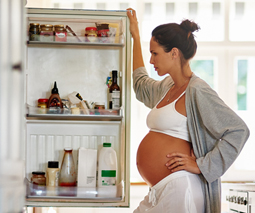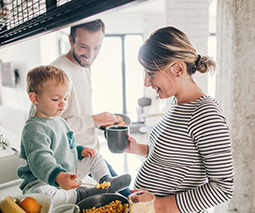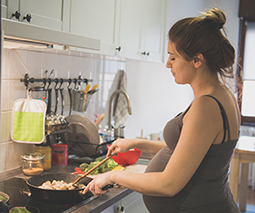Pregnant? Here’s what you need to know about BBQs and food safety
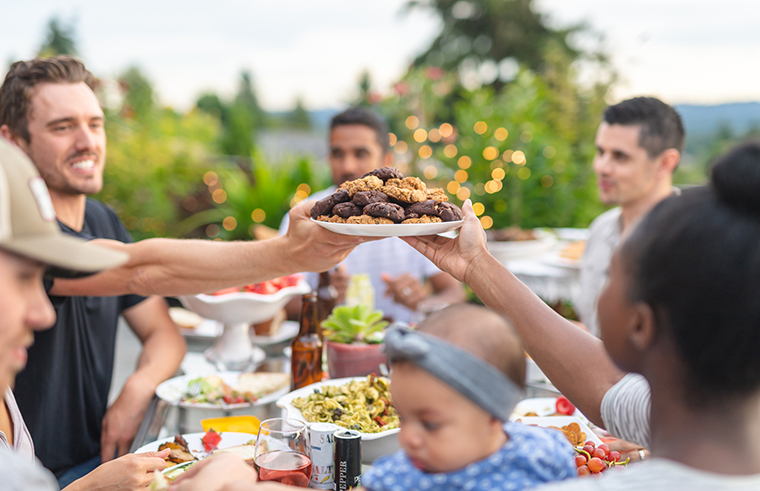
Along with the lovely long twilights, the delicious swims and opportunities to hang out in the garden a whole lot more, summer weather also means that there’s going to be more delicious barbecue invitations in the diary too. Which is lovely news, but if you are pregnant, there are a couple of food safety facts you need to know before you start piling up your dinner plate and munching your way through everything on offer. And it’s not just about avoiding cheese platters, cold meats and oysters.
Food Safety Information Council spokeswoman Lydia Buchtmann says barbecues can be a paradise for listeria, which can cause a nasty form of food poisoning. In healthy people, listeriosis may cause little more than mild gastro. But it can be much more serious for pregnant women, unborn babies and newborns, with the risk of miscarriage, stillbirth and premature birth. It’s also more dangerous in the elderly or people with weakened immune systems.
“Every degree it gets warmer, the food poisoning risk gets higher,” Lydia says.
Listeria is unusual in that it grows in uncooked foods and continues to grow under refrigeration. Heat kills it – but recontamination can happen after cooking through poor food handling. But there are several ways to lower the risk. Here’s how to snag yourself a healthy barbecue.
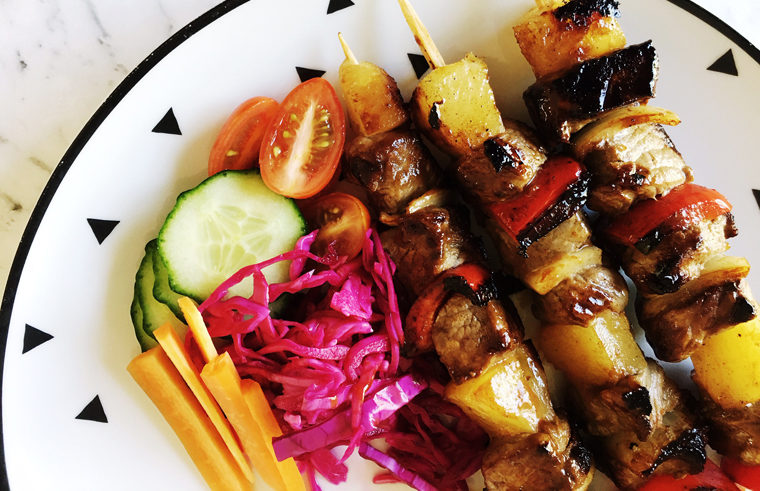
1. Invest in a meat thermometer
Poultry, pork, hamburgers and sausages need to be cooked through to 75°C to make sure the listeria is destroyed. The only real way to know it’s thoroughly cooked is to test it with a thermometer.
Steak can be eaten as you like it, because it’s less likely to be contaminated, says Lydia. But “pork and chicken tend to be more easily contaminated because of the way they are processed, and the contamination goes right through the animal.” Also, avoid uncooked seafood such as sushi platters or oysters.
2. Handle with care
Use clean gloves, tongs and other utensils, and don’t cross-contaminate. Wipe down benches before, during and after preparing food. After it’s been cooked, meat can easily be re-contaminated if it is put on the same plate as raw meat.
3. Watch the nibbles
You already know you should avoid deli meats and soft cheeses. Preparing and serving your own cold meats, such as roast beef, is safer. You also need to be wary of chips and dips left out for guests. If you are the host, put out small bowls of nibbles and then replace when they run out – don’t just top up with more food. Don’t get too fancy with your homemade food, either. Raw egg is a no-no, and that includes in aioli and mayonnaise. Making the whole family sick is never popular.
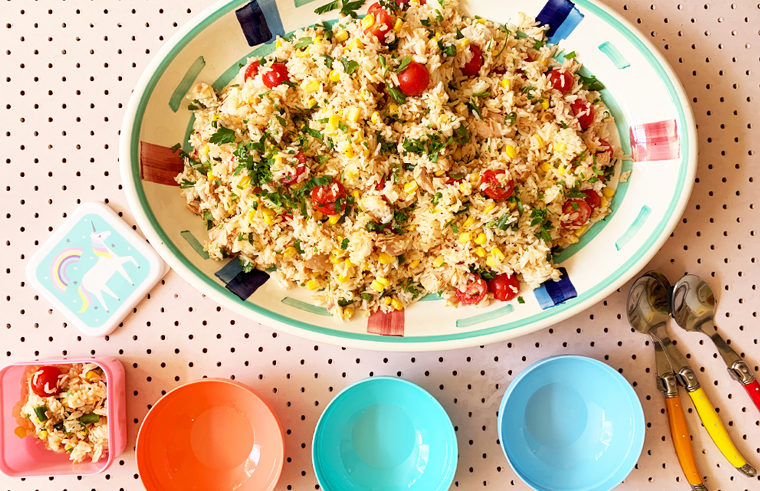
4. Make friends with salads
Avoid pre-made salads from the supermarket deli. Instead, make them yourself using good hygiene – wash your hands thoroughly and make sure your chopping board is clean. If you’re going to someone else’s barbecue, offer to bring a homemade salad and stick to eating that.
5. Move it wisely
When you are taking food to someone else’s barbecue, put the meat at the bottom of the container and salads on top in a sealed container. Use ice blocks to keep everything cool. Pack everything else you need to take first, then pack the Esky with ice blocks and put the food in just before you walk out the door.
6. Keep your cool
It’s smart to take drinks out of the fridge and put them in a tub of ice so everyone can grab their own without having to endlessly open and shut the fridge door. “It stops warming up the fridge,” Lydia says.
Make sure the fridge stays under 5°C and store perishables such as salads and meat there until you’re ready to put them out. Keep meat on the bottom shelf so juices can’t leak onto other food.
7. Prepare for public BBQs
The bad news is that critters and other people can wreak havoc on public barbecues. The good news is that shouldn’t stop you from using them. “Heat will kill any bacteria,” says Lydia. “Throw water on it, scrape it down and make it really hot before you start cooking.” Cut up salads before you go and take antiseptic hand gel and wipes with you.
“Put a tablecloth on picnic tables because they can get contaminated from birds walking along them,” she adds.
8. Delight in dessert
Soft-serve ice cream is a no-no – but otherwise you’re pretty safe. So you can take heart that if nothing else, tucking into the pav at the end of the barbie is a pretty safe bet.
9. Last but not least, leftovers …
Any food that’s been out of the fridge for more than four hours (including transportation time) needs to go in the bin. If it’s been out for fewer than four hours, divide leftovers up into small portions, pop them into containers and put them in the fridge or freezer. Any leftovers put in the fridge need to be eaten within two to three days, or 24 hours if you’re pregnant.
